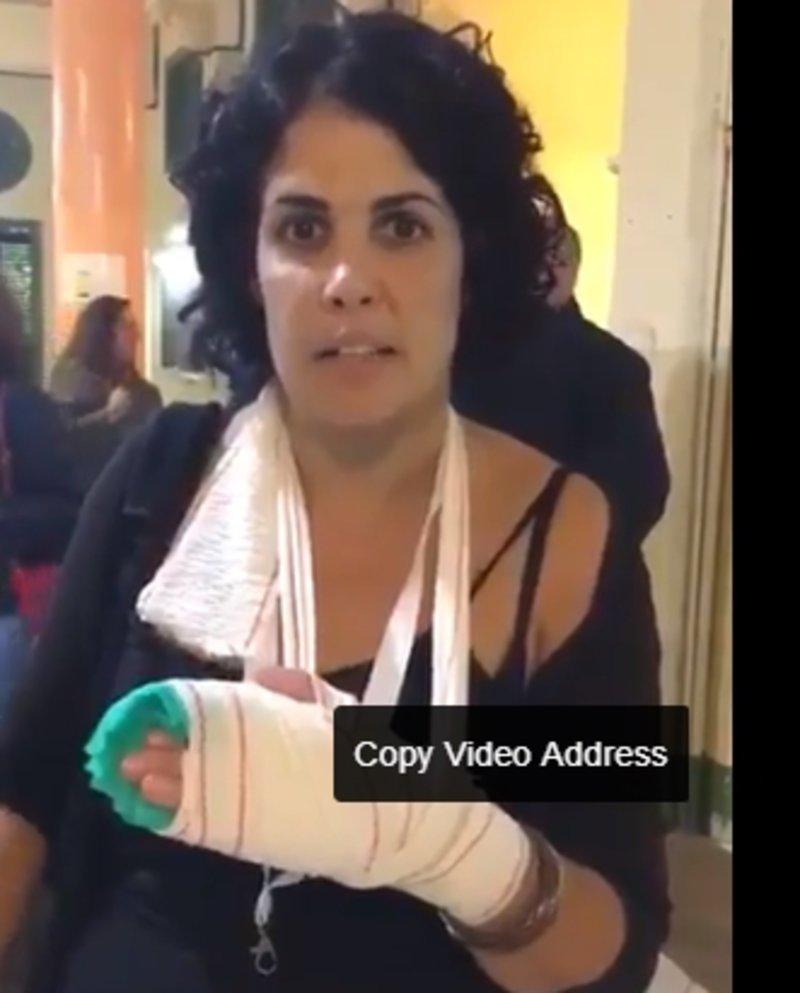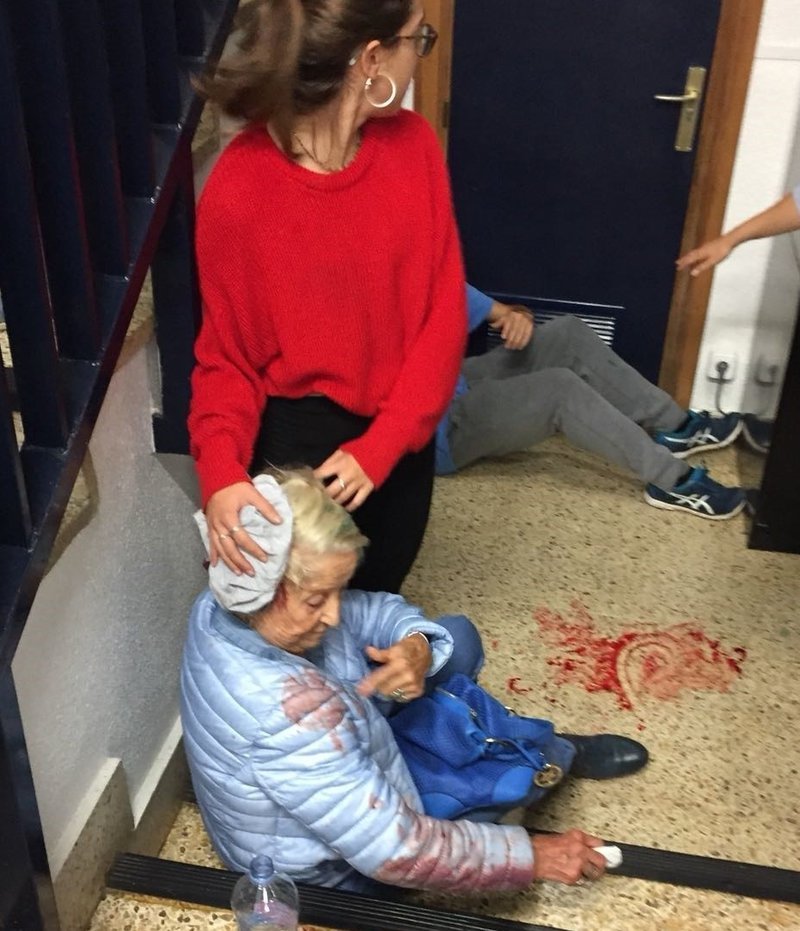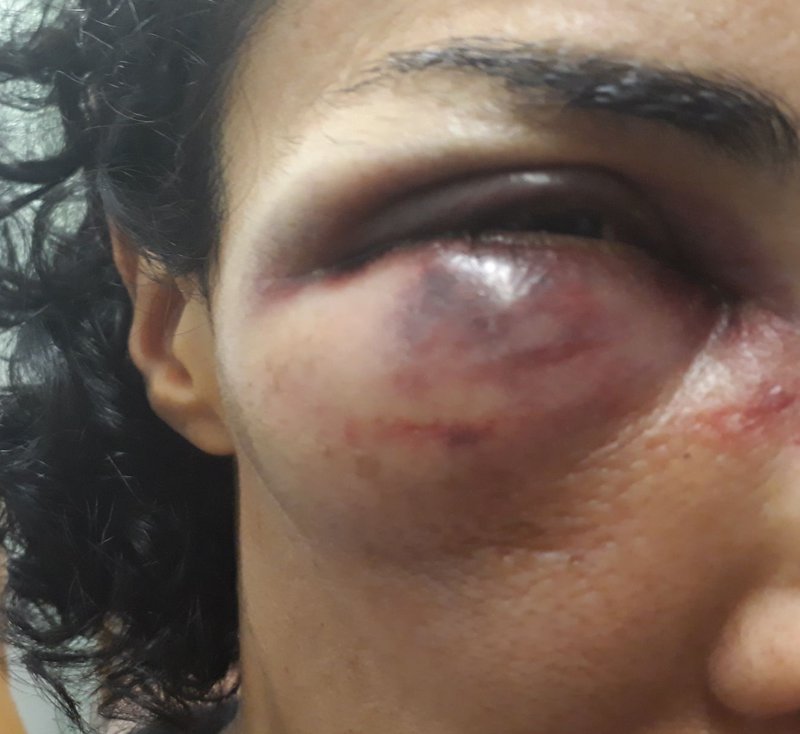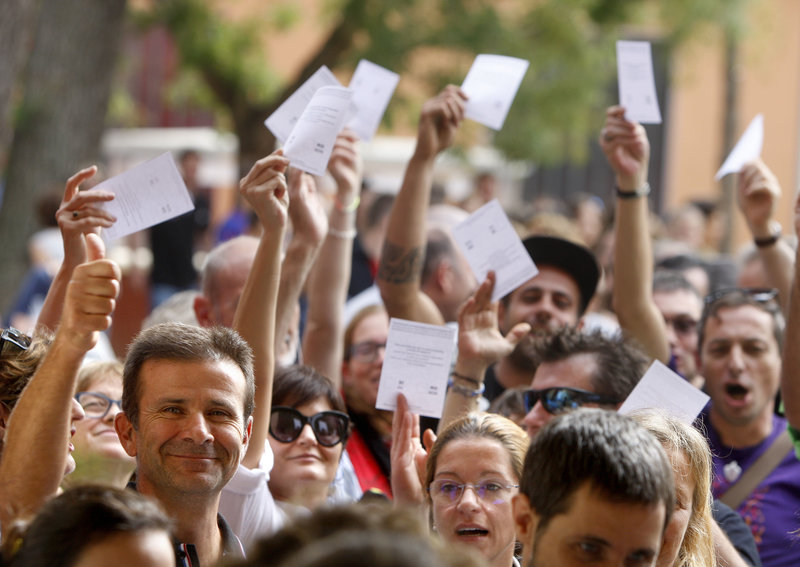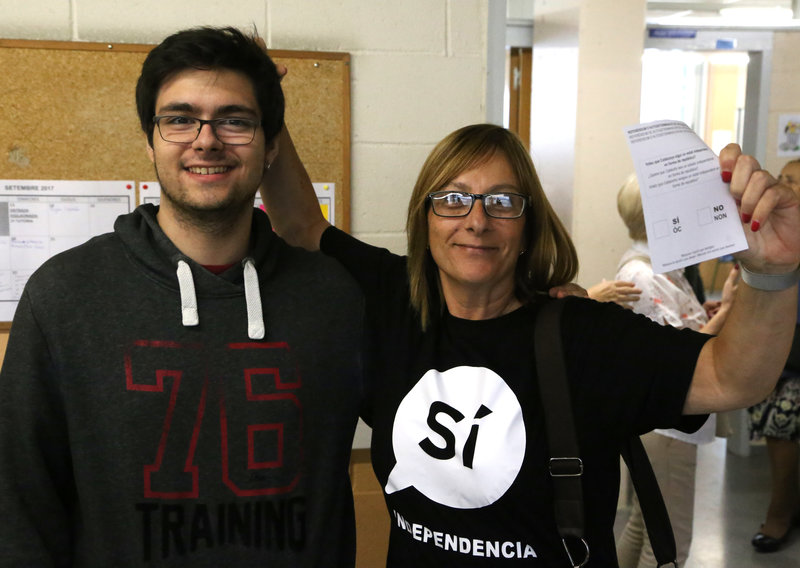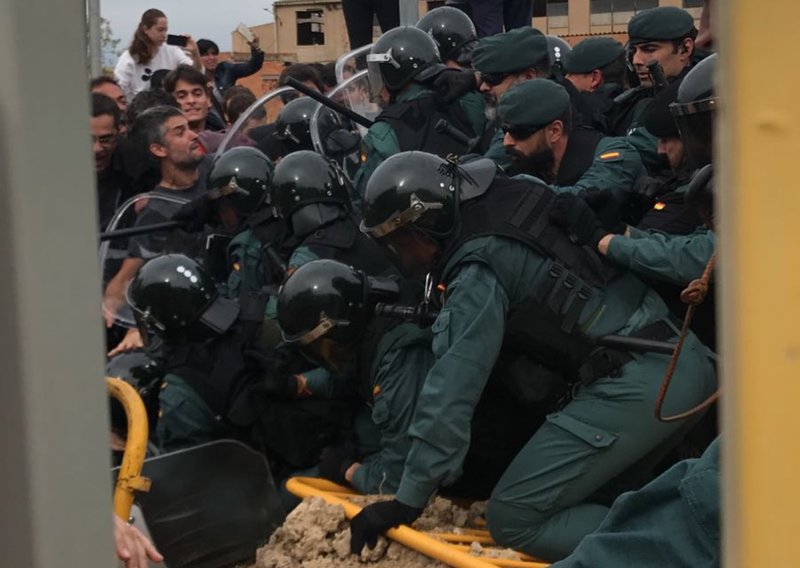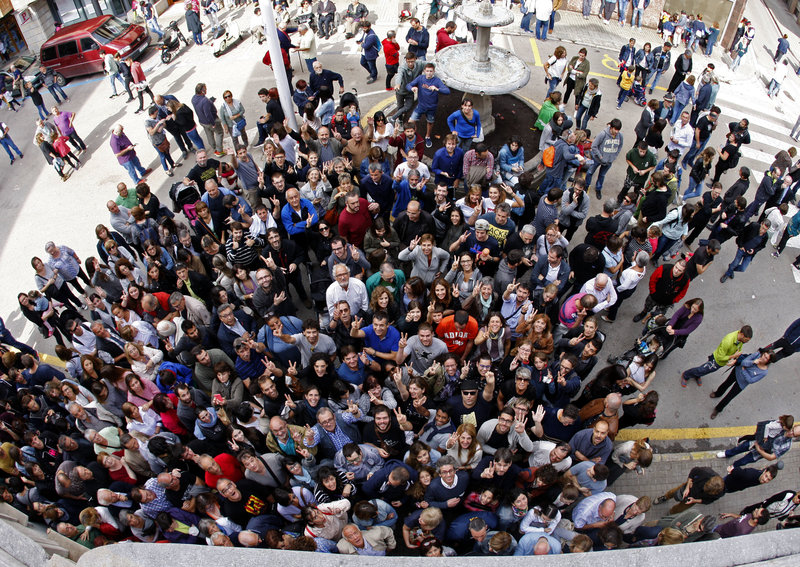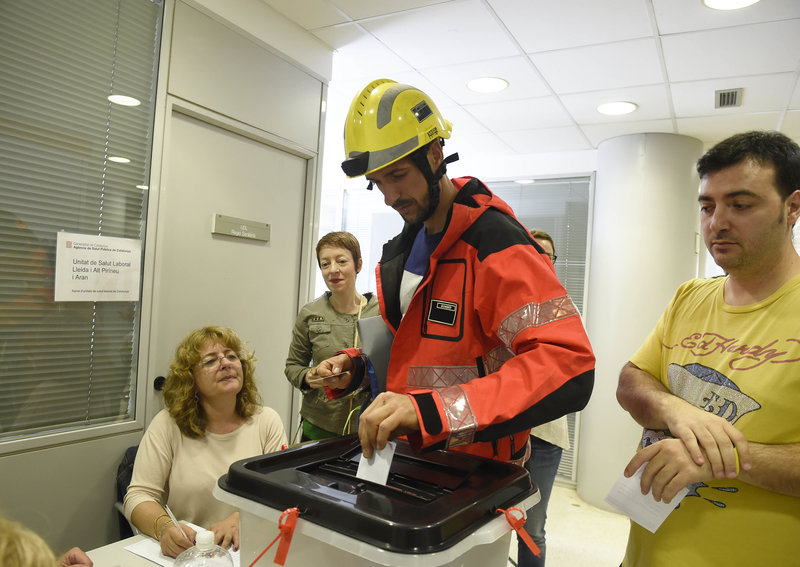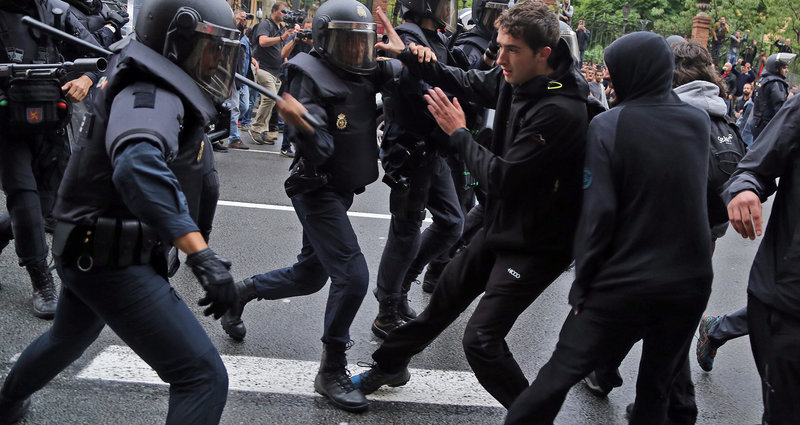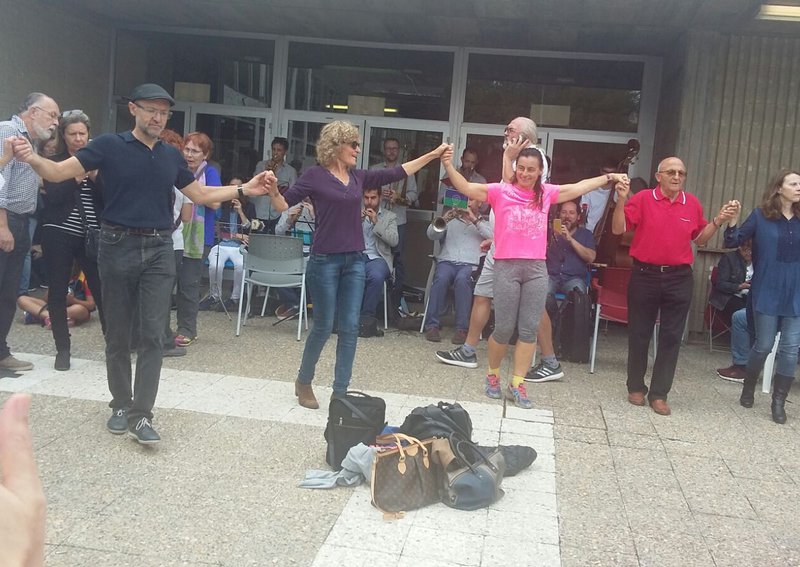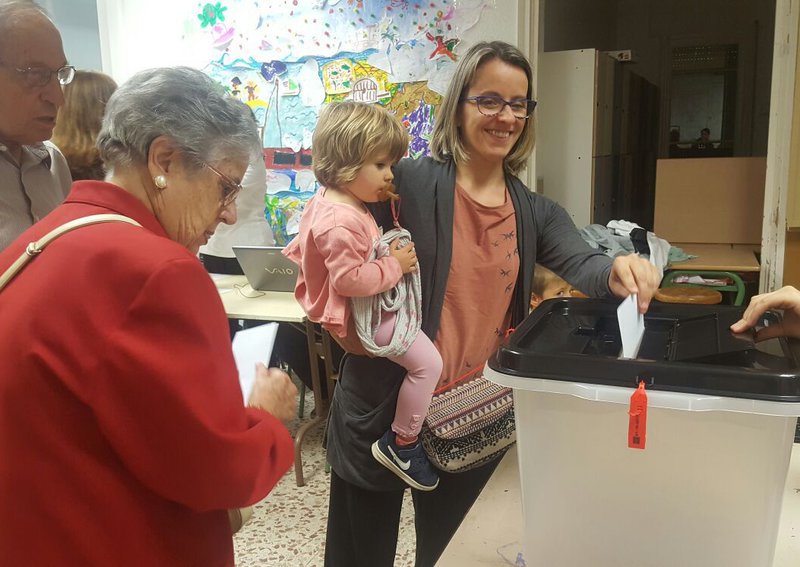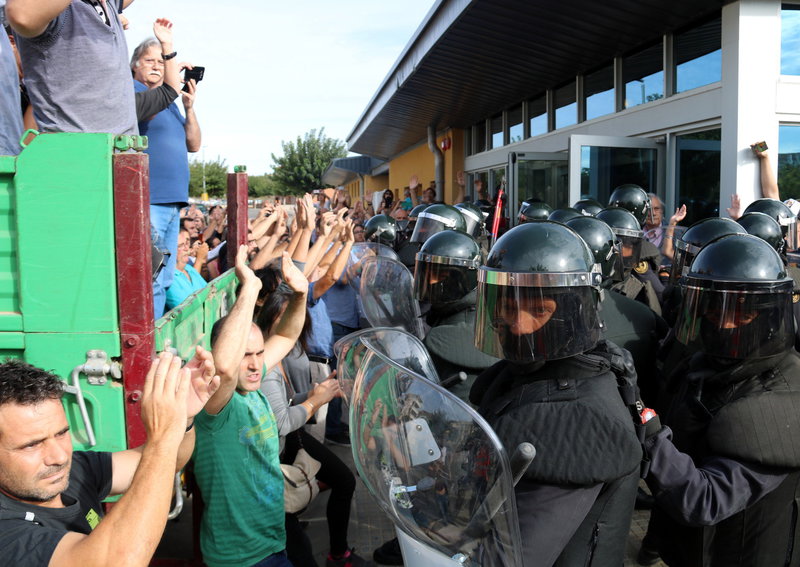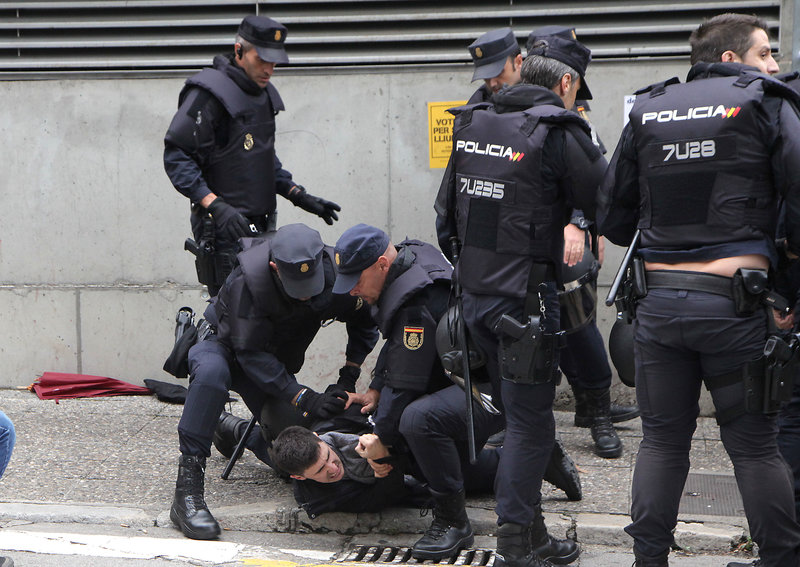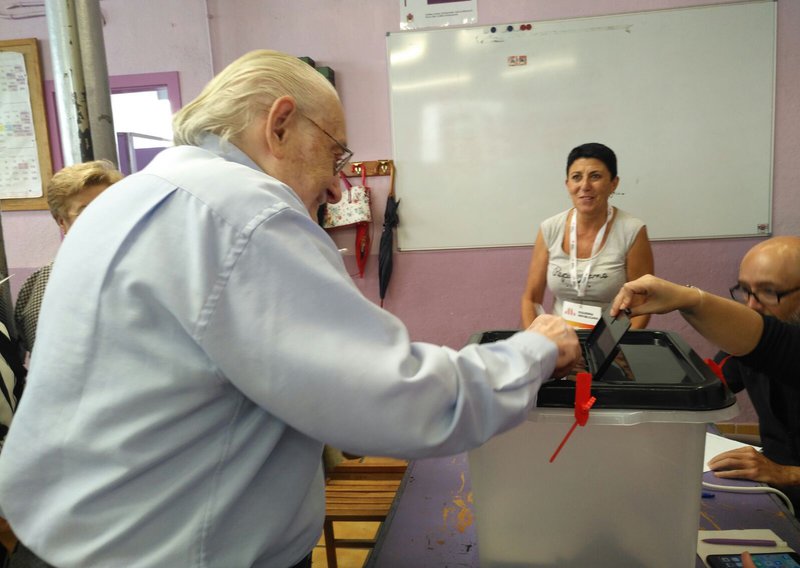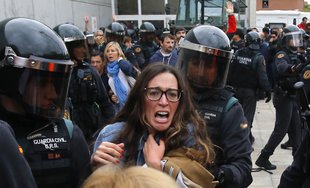Votes and violence
President Puigdemont calls for European intervention and wants a unilateral declaration of independence by Catalan Parliament
Catalonia will never forget October 1, 2017. The brutality of the Spanish security forces in their attempts to prevent the Catalan referendum on independence has forced most of the country on to a path of no return. In a message issued with the agreement of the other pro-independence parties and groups, Catalan president Carles Puigdemont appealed for European mediation, insisting that the Catalan question could no longer be viewed as an internal matter, and that the Catalans had “won the right to an independent state in the form a of a republic,” quoting the wording of the referendum question and paving the way for a formal declaration of independence in accordance with the Referendum Act passed by the Catalan government. It will be down to Parliament to decide.
With regard to the turnout for the referendum, more than 2.2 million were able to cast their vote, with the Catalan government pointing to the Spanish state’s repression of the referendum as the reason for the figure not being even higher. It is unknown how many ballot boxes were seized by the Spanish security forces.
Spanish PM and PP leader Mariano Rajoy appeared before the press on the evening of October 1 to declare that he had done what he had to do, demanding the Catalan government renounce its political stance and return to “institutional normality”, without specifying what that might be. While the PSOE and C’s explicitly backed the Spanish government’s actions, Rajoy claimed that he also had the full support of the EU. Podemos, on the other hand, made its abhorrence of the police brutality and the Spanish government’s role in instigating it very clear.
Despite the growing number of injured throughout the day –which reached 893– and the logistical difficulties of voting due to the judicial and police siege on the referendum, endless queues of Catalan citizens formed outside polling stations from dawn until dusk to exercise their right to vote. Many stations had to be closed for preventive reasons, while others saw crowds of citizens putting their safety at risk to guard the ballot boxes. The vote count was slow and arduous, but done under the protection of civilians in the streets
Following the referendum, the Catalan government lodged an official complaint against the Spanish security agencies for the “disproportionate” use of force and impeding citizens from exercising their rights to express themselves, to public assembly, to demonstrate and to participate in public affairs. Barcelona City Council is also considering presenting a criminal case for the violation of human rights after dozens of violent police actions took place in the capital. Smaller towns were also under siege as civilian and journalists were attacked indiscriminately. The barbaric scenes were covered by the international press, with CNN using the headlines: “This didn’t happen” and “The shame of Europe”.
The overwhelming emotion felt by many voters was in stark contrast to the scenes of violence being disseminated on traditional and social media. After being attended to by medical staff, some of those injured returned to the polling station to vote. Mossos d’Esquadra –Catalan police officers– could be seen in tears and the elderly were assisted in voting without having to wait in the long queues.
In the face of the police repression ordered by the state, Catalans displayed an unprecedented capacity for organisation, with firefighters and Mossos among those standing up to the National Police and Civil Guard in defence of citizens.
Politics from 19th century Spain
Some 893 people were injured in clashes with Spanish police on October 1. The Policía Nacional and Guàrdia Civil riot police used baton charges and rubber bullets to disrupt the voting at polling stations all over Catalonia. The day after the referendum four people were still in hospital, two of them in a serious condition. According to the Spanish interior ministry, some 33 police officers were hurt.
One of the two serious cases is a young man who was injured when a rubber bullet hit him in the eye, outside the Ramon Llull school in Barcelona. Surgeons in the Sant Pau hospital in Catalan capital operated on the man, hoping to save his eye. Meanwhile a 70-year old man in the Vall d’Hebron hospital in Barcelona suffered a heart attack when Spanish police were evicting people from polling station in Mariola, in Lleida.
Ten of the people injured were hurt by tear gas, which was used by Spanish police during a baton charge in Aiguaviva, in Gironès. The attack took place in the middle of the day while 200 local people were eating lunch together next to the town hall, which was being used as a polling station.
However, most of the people hurt were injured in Barcelona (355), with 249 hurt in the Girona region, 111 in Lleida, 55 in Terres de l’Ebre, 46 in Central Catalonia, 26 in the Camp de Tarragona region and 1 in the Pyrenees. Most of the injuries were caused by blows from police batons.
'They broke my fingers one by one'
The shameful image that Spain is giving Europe is not that of a “consolidated democracy”, as the Partit Popular and its fellow travellers repeat ad infinitum, but one of a territory where even now, in the 21st century, people who want to vote peacefully are repressed. To add insult to injury, Mariano Rajoy has passed off the responsibility for what took place with arguments almost too reminiscent of those used by the perpetrators of domestic violence in justifying their actions. On October 1, Rajoy made an ominous speech replete with thinly veiled threats. More repression: this is all that the State can propose, when what is needed is a civil response, especially in remembering that Catalonia is one of the powerhouses, if not the most important, in the wellbeing of the Spanish State.
Catalonia is where it is today because it has defended its rights peacefully, a value that we must conserve now more than ever; because peace is what gives us our essence and our strength. Catalonia is the 21st century, while there are many politicians, such as Rajoy, who seem more comfortable in making use of political practises that hark back to the 19th century. They are the biggest problem in Spain, which cannot consider itself to truly be part of the family of established democracies until they have gone away.
One of the cases of police aggression that got the most attention was the situation of 33-year-old Barcelona woman, Marta Torrecillas. She complained that some Spanish National Police officers threw her down stairs when they forcibly entered the Institut Pau Claris in Barcelona, which was being used as a polling place. According to Torrecillas, the officers threw her to the ground and dragged her down the stairs. “One officer, while he dragged me, broke each of my fingers one by one, on purpose,” she said on Twitter. After receiving medical attention, Marta returned to the polling station to vote. There was great sympathy and solidarity for Torrecillas online, with the identification number of the police officer who broke her fingers shared so that he can be reported. The treatment of the young woman caused great indignation, especially as there was also a sexual element, in that the officers ripped off part of her clothes and touched her inappropriately, she claims.
'You have already won, nothing can stop this now'
Among those who closely followed the events on October 1 were 200 elected representatives from various parts of the world, who were invited by the Association of Municipalities for Independence (AMI). Almost half were from the Basque Country, but others were from Quebec, Switzerland, France, Croatia, Greece, and Senegal, among other places. They watched the events unfold and admired the peaceful response of the people despite the violence and attacks. The mayor of Hernani, Luis Intxauspe, commented with a little envy: “You have already won, nothing can stop this now.”

